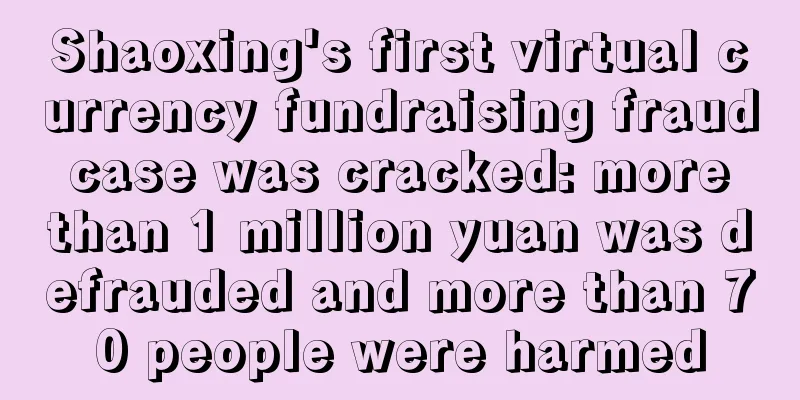When blockchain is created, regulators will follow

|
The hardest part of drafting a new regulation is defining the new thing. In fact, much of the work in developing policy is defining entities, and once an entity is defined, subsequent policy considerations are minimal. Every institution wants a piece of the cryptocurrency pie The very definition of cryptocurrency illustrates this regulatory problem. Basically, to commodity regulators, virtual currency is a commodity; to bank regulators, it is a bank; to securities regulators, it is a security; to those who regulate money transmitters, it is a money transmitter; to those who manage asset taxes, it is an asset. Everyone wants a piece of this new virtual currency world. The "default choice" of regulators is to do something, which has led to confusion in the regulation of virtual currencies. For example, in 2015, the U.S. Commodity Futures Trading Commission (CFTC) stipulated that Bitcoin is a commodity. Goelman, the CFTC's implementation director, said at a press conference: "Bitcoin and other virtual currencies have many bright spots, but innovation is not a reason to violate commodity derivatives market management regulations." Cryptocurrencies are simply classified as commodities under the Commodity Exchange Act of 1936, which provides an all-inclusive list of commodities that ends with "all other goods and articles." But according to the Internal Revenue Service (IRS), virtual currencies are assets, with a 2014 IRS notice stating that "payments made with virtual currency are taxable to the same extent as payments made with other property, and that the use of convertible virtual currency as payment for real-world goods or services is taxable." However, many state regulators still view virtual currencies as money transmitters. According to the definition of 31 CFR 1010.100, a money transmitter is: (A) A person who provides money transmission services. Money transmission services are any service that involves receiving money, funds, or other money substitutes from another person or transferring money, funds, or other money substitutes to another place. Such definitions make the overlap between regulators even more serious. The Bank Secrecy Act gives the Financial Crimes Enforcement Network (FinCEN) the power to regulate money transmitters, and a FinCEN guidance document states that cryptocurrency is a virtual currency and is subject to the Bank Secrecy Act enacted in 1970. The FinCEN guidance document reads: "Compared to real currency, 'virtual' currency is a medium of exchange that is used similarly to currency in some environments, but it does not have all the attributes of real currency. There is no equivalent real currency behind the virtual currency, and it does not play a substitute role for real currency." It may be helpful to first define what virtual currency is not. It is easier to define it as not money or legal tender. The use of the terms “currency” and “coin” in the digital world is inappropriate. Cryptocurrency would be illegal if it was designed as a competitor to the dollar. However, avoiding the potential adverse consequences of trusting a third party is not an attempt to compete with the dollar; deploying a blockchain is not an attempt to create counterfeit money; it is just creating a ledger, not issuing a currency. Similar payment systems that have existed for decades do not violate the laws that protect the dollar. If cryptocurrency is not money, then it is not legal tender. Section 31 of the United States Code does not distinguish between legal tender and legal tender, and treats both the same. Generally speaking, legal tender is any form of money that cannot be rejected when used to pay a debt. A virtual currency is not an investment representation of a large platform. Thus, a virtual currency can be an investment contract, a type of security. The U.S. Securities and Exchange Commission (SEC) has considered the application of blockchain in securities regulation. SEC Chairman Mary Jo White recently said in a speech at Stanford University: "We are closely following the development of blockchain technology and have already started work in this area in some areas. A key regulatory issue is whether blockchain needs to be registered under the Commissioner's regulatory system. We are actively exploring these issues and the consequences they bring." It’s clear that federal agencies are rushing to regulate cryptocurrencies, and local governments are defining the technology in their own terms. The FreedomWorks Foundation will release a detailed analysis of the topic later this month. |
<<: How unreliable is Steemit, which has increased nearly 20 times!
>>: Former Google engineer develops blockchain-based operating system for banks
Recommend
What is the fortune line in palmistry? Detailed explanation of the fortune line in palmistry
Some people work hard all their lives but still c...
Is it good for a man to have deep forehead wrinkles?
Forehead wrinkles do not necessarily appear only ...
Be careful of people with smiling tiger face
There are many smiling tigers in life. You should...
What does a mole on the inner corner of the right eye mean?
Moles are often seen in our daily life, as everyo...
Illustrated guide to career lines on palmistry: Actors with this kind of palm lines will be popular!
How to read the career line in palmistry with com...
Analysis of women’s mouth features: What kind of mouth looks good?
People often say that the mouth is the sexiest par...
Palmistry for marriage: Good marriages seen from palmistry
Love is always elusive, and people who are in lov...
Let’s talk about Ethereum mergers and forks. How can ordinary investors participate?
On the eve of the Ethereum merger (the evening of...
The cleverness of Ethereum
Lao Mao’s special note: Ethereum has seen a huge ...
How to view your own photo
Physiognomy belongs to the category of image and ...
Analysis: What is the best way to stop in face reading?
The three parts of the face refer to the division...
What does a broken lifeline mean?
In addition to the three main lines on our hands,...
The total amount of digital RMB is 40 million. The Chengdu Municipal Government will work with JD.com to distribute 200,000 red envelopes to citizens
According to BlockBeats, according to JD Technolo...
What kind of woman will be your noble one?
In work and life, we all hope to have help from n...
What does career line mean?
In our palms, there may be phoenix eye patterns, ...









